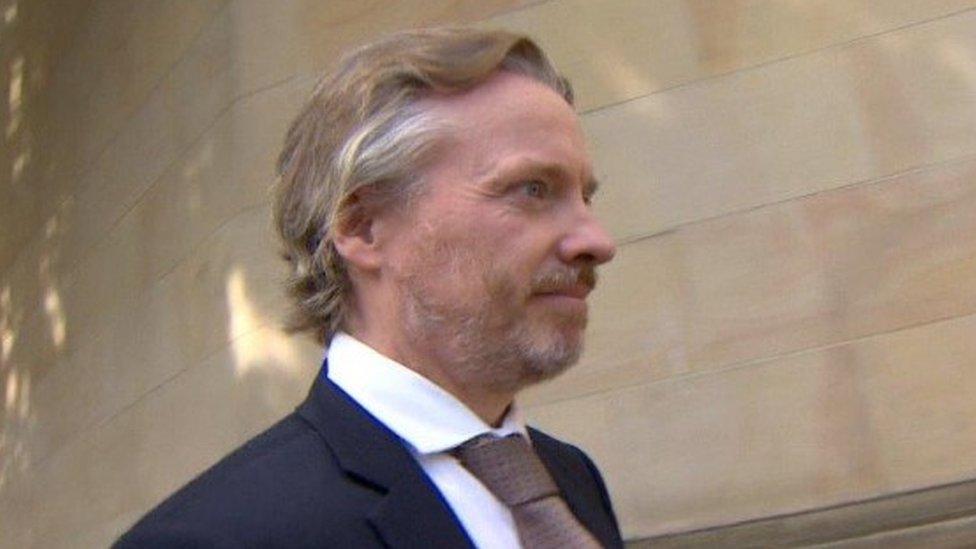Rangers discussed administration before Whyte bid, court hears
- Published
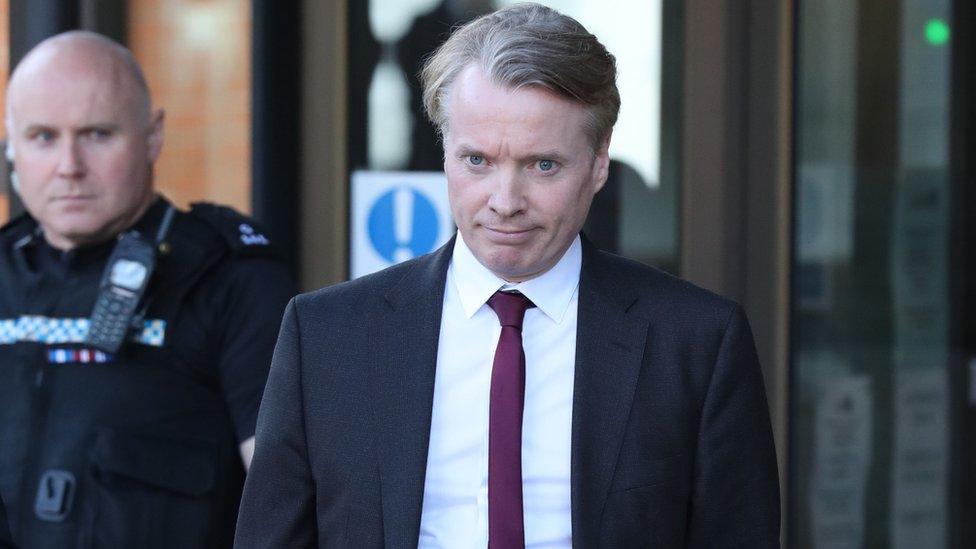
Craig Whyte bought Rangers in May 2011
The board of Rangers discussed putting the club into administration months before it was bought by businessman Craig Whyte.
According to former financial director Donald McIntyre, the size of the club's financial liabilities meant it would have been "remiss" not to do so.
Mr Whyte is accused of a fraudulent acquisition of Rangers.
The 46-year-old denies two charges relating to the purchase - one of fraud and another under the Companies Act.
Speaking from the witness box where he was giving evidence for a second day, Mr McIntyre discussed the financial obligations faced by Rangers in the months leading up to the sale of the club to Mr Whyte in May 2011.
'Terminal event'
He said Rangers faced a potential bill from HMRC of about £50m, which had been described as the "Big Tax Case".
Defence QC Donald Findlay called the debt a "nuclear missile" that was heading straight for Rangers.
He said it was "like an exocet, nothing could be done to stop it".
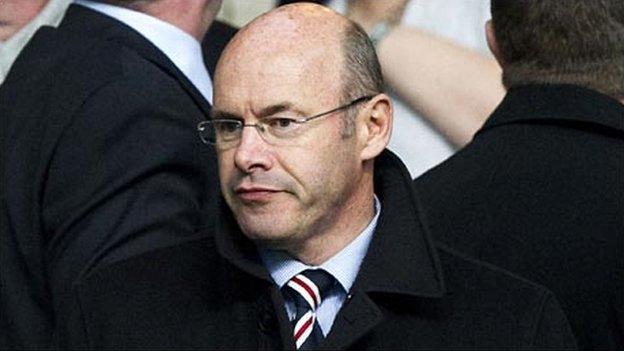
Donald McIntyre was the finance director at Rangers from 2006 to 2011
Mr McIntyre said Rangers board members had hoped to challenge the amount owed and that counsel at the time had suggested they had a very good chance in the case.
However, Mr Findlay put it to the witness that the tax bill was a "potentially terminal event" for the club.
The advocate asked when Mr McIntyre first knew "the board was discussing the possibility of administration" for Rangers.
Mr McIntyre said he could not be "specific of a date" but that the "subject would have cropped up" in 2010.
'Virtually anything'
The court went on to hear about a meeting of Rangers directors in March 2011.
They discussed the money owed to HMRC and the possible impact for the club.
Mr Findlay put it to Mr McIntyre: "Rangers could not contemplate paying up that size of debt?"
Mr McIntyre agreed.
Later the jury was told that Rangers did go into administration "much later" but that it was "nothing to do" with the "Big Tax Case".
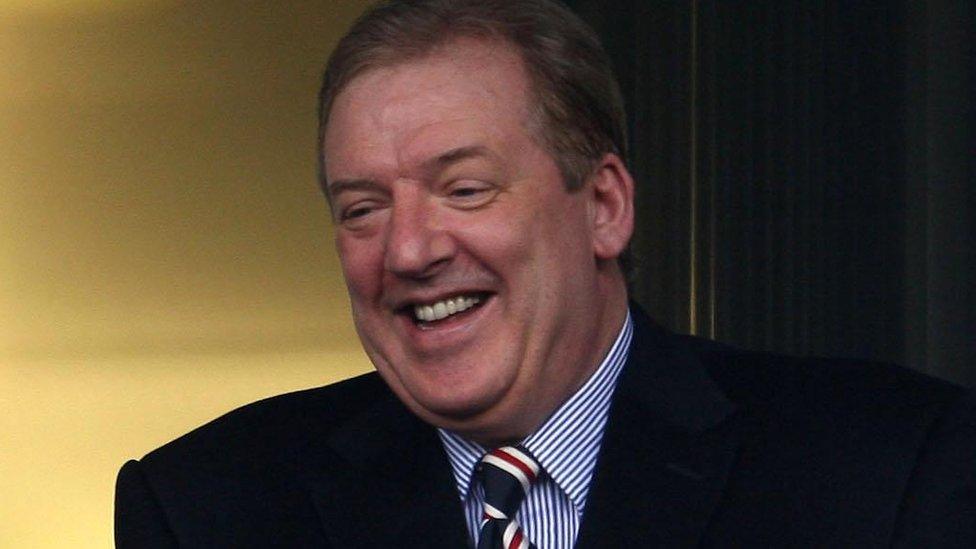
David Murray bought Rangers football club in 1988
The trial also heard the claim that Rangers former owner Sir David Murray, who purchased the club in 1988, had described Mr Whyte's bid for the club as the "only show in town".
Mr Findlay put to Mr McIntyre: "Did it become abundantly clear that Murray would do virtually anything to secure the deal with Mr Whyte?"
Mr McIntyre responded: "I would not put it like that. I don't think a deal would have been done under any circumstance."
Playing squad
The defence advocate went on: "A deal was done under any circumstance...Rangers was bought for a pound."
Mr McIntyre added: "With commitments and obligations."
Mr Whyte is accused of pretending to former Rangers owner Sir David Murray, and others, that funds were available to make all required payments to acquire a "controlling and majority stake" in the club.
The funds included clearing the £18m bank debt, £2.8m for the "small tax case" liability, a £1.7m health-and-safety liability and £5m for the playing squad.
The Crown alleges Mr Whyte had only £4m available from two sources at the time but took out the £24m loan from Ticketus "which was held subject to an agreement or agreements being entered into between the club and Ticketus after said acquisition".
The second charge under the Companies Act centres on the £18m payment between Mr Whyte's Wavetower company and Rangers to clear a bank debt.
The trial before eight men and seven women continues.
- Published24 April 2017
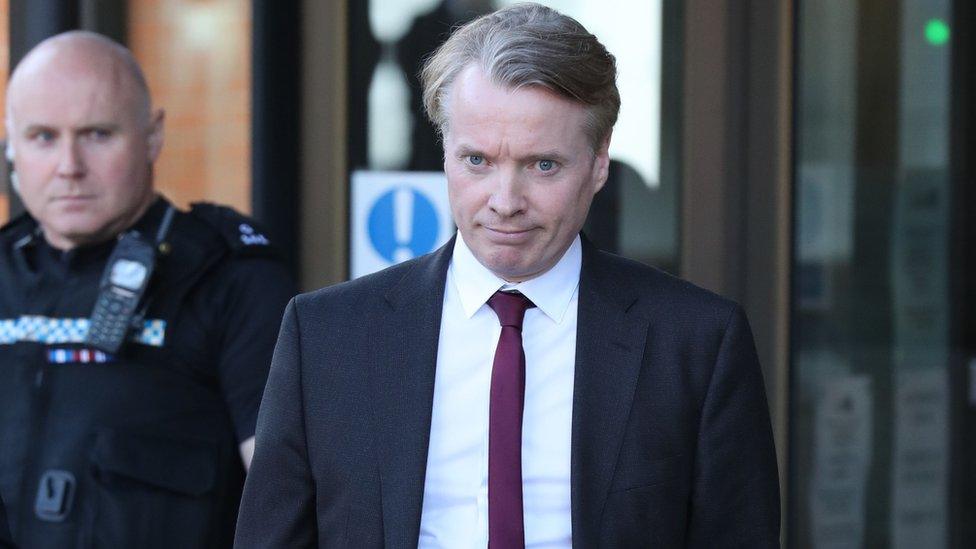
- Published21 April 2017

- Published20 April 2017
